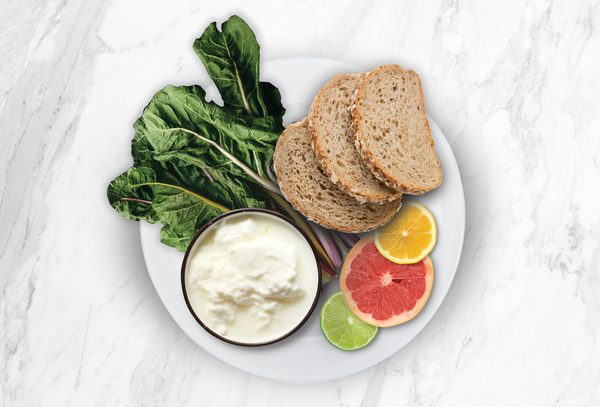
Each year, people spend millions of dollars to make their skin look and feel young, vibrant, and healthy. Products and treatments promise skin that is moisturized, scrubbed, unclogged, cured, revitalized, and wrinkle-free.
The vastly greater influence on your skin’s long-term health and appearance, however, comes from within. This is because your skin depends on what you feed it for the fuel and elements required to carry out its numerous functions.
What Is Skin?
The Largest Organ
You may not think of your skin as an organ, like the heart or liver, but it’s the largest organ in your body. Skin is a hub of activity. You can have 1,000 nerve endings, 650 sweat glands, and 20 blood vessels in just one square inch of skin.
The Three Layers of Skin
The epidermis, or outer layer, is the body’s first line of defense. It is a barrier, protecting everything inside from germs and harmful substances.
The dermis, or middle layer, contains sweat and oil glands, hair follicles, and blood vessels.
The fat layer, or inner layer, protects you from excessive temperatures and stores energy.
The Ultimate Multitasker
Your skin’s many functions include:
- Protecting against diseases and harmful substances.
- Storing water and fat.
- Enabling the sense of touch to interact with the outside world.
- Preserving moisture.
- Preventing loss of nutrients.
- Regulating body temperature.
This hardworking organ needs all the care and support you can give it. While all the lotions and other topical substances can contribute to your skin’s health, the real power comes from what you eat.
Inflammation, Free Radicals, and Oxidative Stress
Some of your skin elements are described as antioxidants, protecting from inflammation and free radicals. What are these?
Inflammation is what your immune system creates when it detects injury or infection. Usually, this leads to healing. However, illness, obesity, stress, and exposure to toxins can make your body react to nonexistent injury or infection, creating continuous inflammation. The result can be heart disease, dementia, cancer, and more.
Free radicals are unstable atoms that can trigger cell-damaging, illness-causing oxidative stress over time. This can cause severe conditions such as dementia, arthritis, cancer, diabetes, degenerative diseases, and aging.
Foods associated with antioxidants and inflammation-reducing properties protect your skin and body.
Skin’s Building Blocks
Several elements ensure your skin can efficiently perform its many jobs. Therefore, most of your diet must consistently include foods that provide these elements. How much you need of each depends on your body size and type, lifestyle and activities, the weather, your stress level, and health issues.
Moisture
Your body needs steady moisture to keep its parts functioning and wash away what it no longer needs. The moisture you lose through sweat and elimination has to be replaced. Hydration is essential for your skin, which is exposed to sunlight, dirt, harsh chemicals, and other things that can dry, irritate, or harm it.
Your daily water quota can include other beverages, but avoid drinks high in sugar. Most foods also contain some amount of water, especially fruits and vegetables.
Proteins
Protein gives you energy, distributes oxygen to your cells, helps your body fight infection and illness, and creates new cells. On the other hand, not enough protein can mean muscle and tissue damage and loss.
You can find protein in any meat (preferably lean meats), fish, and eggs. Bone broth is high in collagen, an excellent benefit for your skin. Tofu (soybean curd) and other plant-based proteins are also readily available.

Vitamins
Vitamins helpful to your skin include A, C, D, and E. Vitamins C and E can help keep your skin in great shape and delay wrinkling. Vitamins A, D, and E are necessary for healthy skin and may help protect it from acne.
These vitamins can be found in a variety of foods, including:
- A: liver, eggs, some fish and cheeses, sweet potatoes, carrots, spinach
- C: citrus fruit, bell peppers, broccoli, berries
- D: Primarily from sunlight, this can also come from salmon, tuna, and egg yolks
- E: almonds, sunflower seeds, wheat germ, salmon
Omega-3 Fatty Acids
This vital source of energy supports the smooth functioning of organs and systems. They lower triglycerides (blood fat) and reduce inflammation and may even help improve mental health issues, such as depression and dementia.
Omega-3s are prevalent in oily fish, nuts, soy, chia seeds, and plant-based oils (e.g., flaxseed, walnut, soy, canola).
Antioxidants
As discussed earlier, antioxidants can prevent damage caused by free radicals and oxidative stress. There are many sources of antioxidants you can include in your diet.
- Polyphenols: tea, coffee, red wine, grapes, chocolate
- Lycopene: tomatoes, watermelon
- Various antioxidants: brightly colored vegetables
- Lipoic acid: spices such as oregano, cinnamon, cloves
Anti-inflammatory Elements
Also discussed earlier, inflammation can create plenty of trouble. Anti-inflammatory foods include:
- Polyphenols: green tea, turmeric
- Polysaccharides: dietary fiber foods such as whole grains, raw fruits, and vegetables
- Probiotics: yogurt, supplements
Steady Blood Sugar
Skin health can also benefit from keeping your blood sugar levels relatively constant. This means avoiding a lot of high-sugar foods and substantial meals.
Just a Little or None of These
An imbalanced diet can contribute to ailing and aging skin. Too much food that is high in fat, loaded with processed and refined sugars, and contains omega-6 fatty acids can lead to oxidative stress, inflammation, and disease.
This doesn’t mean that you should never eat another cookie, but it does mean that these foods should represent a tiny portion of your diet.
Conclusion
Your skin’s health depends on a healthy, balanced diet. Every day it is important to give your skin the elements it needs to perform its multiple, vital functions. What’s good for your skin is no different than what’s good for the rest of your body.
Feed your skin well from within, and the lotions and other treatments from the outside can enhance your skin’s appearance and feeling of health and vitality.






0 Comments